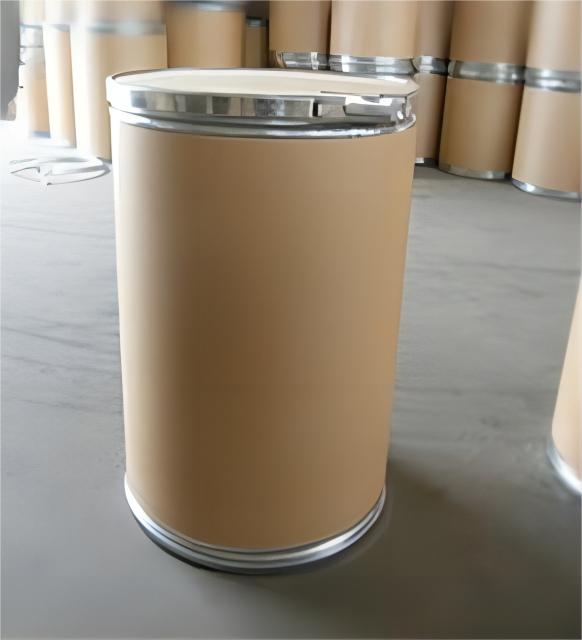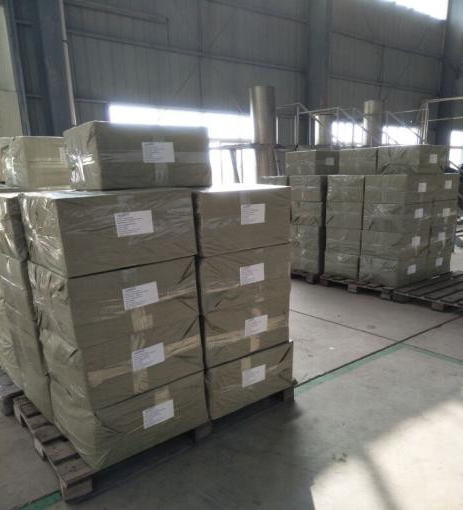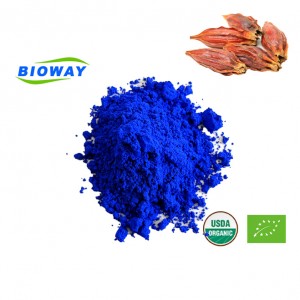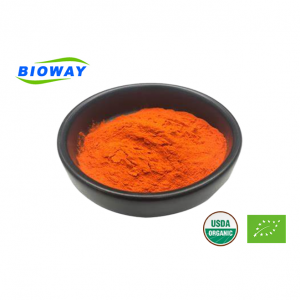High-quality Pure Isoquercitrin Powder
Isoquercitrin powder is a natural compound extracted from the flower buds of the Sophora japonica plant, commonly known as the Japanese pagoda tree. Isoquercetin (IQ, C21H20O12, Fig. 4.7) is also sometimes called isoquercetin, which is a nearly identical quercetin-3-monoglucoside. Although they are technically different because Isoquercitrin has a pyranose ring whereas IQ has a furanose ring, functionally, the two molecules are indistinguishable. It is a flavonoid, specifically a type of polyphenol, with significant antioxidant, anti-proliferative, and anti-inflammatory properties. This compound has been found to play a role in reducing ethanol-induced liver toxicity, oxidative stress, and inflammatory responses through the Nrf2/ARE antioxidant signaling pathway. Additionally, Isoquercitrin regulates the expression of inducible nitric oxide synthase 2 (iNOS) by modulating the nuclear factor-kappa B (NF-κB) transcriptional regulatory system.
In traditional medicine, Isoquercitrin is known for its expectorant, cough-suppressant, and anti-asthmatic effects, making it a valuable treatment for chronic bronchitis. It has also been suggested to have auxiliary therapeutic effects for patients with coronary heart disease and hypertension. With its high bioavailability and low toxicity, Isoquercitrin is considered a promising candidate for preventing diabetes-related birth defects. These combined properties make Isoquercitrin powder a subject of interest for further research and potential applications in modern medicine and healthcare.
| Product name | Sophora japonica flower extract |
| Botanical Latin Name | Sophora Japonica L. |
| Extracted parts | Flower Bud |
| Item | Specification |
| Physical Control | |
| Appearance | Yellow powder |
| Odor | Characteristic |
| Taste | Characteristic |
| Assay | 99% |
| Loss on Drying | ≤5.0% |
| Ash | ≤5.0% |
| Allergens | None |
| Chemical Control | |
| Heavy metals | NMT 10ppm |
| Microbiological Control | |
| Total Plate Count | 1000cfu/g Max |
| Yeast & Mold | 100cfu/g Max |
| E.Coli | Negative |
| Salmonella | Negative |
1. Isoquercetin powder is a powerful antioxidant that helps protect cells from oxidative damage.
2. It supports cardiovascular health by promoting healthy blood flow and circulation.
3. Isoquercetin has anti-inflammatory properties, which can help reduce inflammation in the body.
4. It may support immune function and help the body fight off infections.
5. Isoquercetin powder can also aid in maintaining healthy blood sugar levels.
6. It has potential anti-cancer properties and may help inhibit the growth of cancer cells.
7. Isoquercetin is a natural bioflavonoid that can support overall health and well-being.
♠ 21637-25-2
♠ Isotrifolin
♠ Isoquercitroside
♠ 3-(((2S,3R,4R,5R)-5-((R)-1,2-Dihydroxyethyl)-3,4-dihydroxytetrahydrofuran-2-yl)oxy)-2-(3,4-dihydroxyphenyl)-5,7-dihydroxy-4H-chromen-4-one
♠ 0YX10VRV6J
♠ CCRIS 7093
♠ 3,3',4',5,7-Pentahydroxyflavone 3-beta-D-glucofuranoside
♠ EINECS 244-488-5
♠ quercetin 3-O-beta-D-glucofuranoside
1. Dietary supplement industry for formulating antioxidant and respiratory health products.
2. Herbal medicine industry for traditional remedies targeting liver health and inflammation.
3. Pharmaceutical industry for potential applications in diabetes-related health formulations.
4. Health and wellness industry for developing products promoting overall health and wellness support.
Storage: Keep in a cool, dry, and clean place, Protect from moisture and direct light.
Bulk Package: 25kg/drum.
Lead Time: 7 days after your order.
Shelf Life: 2 years.
Remark: Customized specifications also can be achieved.

25kg/case

Reinforced packaging

Logistics security
Express
Under 100kg, 3-5Days
Door to door service easy to pick up the goods
By Sea
Over300kg, Around 30 Days
Port to port service professional clearance broker needed
By Air
100kg-1000kg, 5-7Days
Airport to airport service professional clearance broker needed

Bioway gains certifications such as USDA and EU organic certificates, BRC certificates, ISO certificates, HALAL certificates, and KOSHER certificates.

Quercetin Anhydrous Powder and Quercetin Dihydrate Powder are two different forms of quercetin with distinct physical properties and applications:
Physical Properties:
Quercetin Anhydrous Powder: This form of quercetin has been processed to remove all water molecules, resulting in a dry, anhydrous powder.
Quercetin Dihydrate Powder: This form contains two molecules of water per quercetin molecule, giving it a different crystalline structure and appearance.
Applications:
Quercetin Anhydrous Powder: Often preferred in applications where the absence of water content is critical, such as in certain pharmaceutical formulations or specific research requirements.
Quercetin Dihydrate Powder: Suitable for applications where the presence of water molecules may not be a limiting factor, such as in some dietary supplements or food product formulations.
It’s important to consider the specific requirements of the intended application when choosing between these two forms of quercetin to ensure optimal performance and compatibility.
Quercetin Anhydrous Powder is generally considered safe when taken in appropriate amounts. However, some individuals may experience mild side effects, especially when consumed in high doses. These potential side effects may include:
Upset Stomach: Some people may experience digestive discomfort, such as nausea, stomach pain, or diarrhea.
Headaches: In some cases, high doses of quercetin may lead to headaches or migraines.
Allergic Reactions: Individuals with known allergies to quercetin or related compounds may experience allergic symptoms such as hives, itching, or swelling.
Interactions with Medications: Quercetin may interact with certain medications, so it’s important to consult a healthcare professional if you are taking any prescription drugs.
Pregnancy and Breastfeeding: There is limited information about the safety of quercetin supplements during pregnancy and breastfeeding, so it’s advisable for pregnant or nursing women to consult a healthcare provider before using quercetin supplements.
As with any dietary supplement, it’s essential to use quercetin anhydrous powder responsibly and seek medical advice if you have any concerns about potential side effects or interactions.











